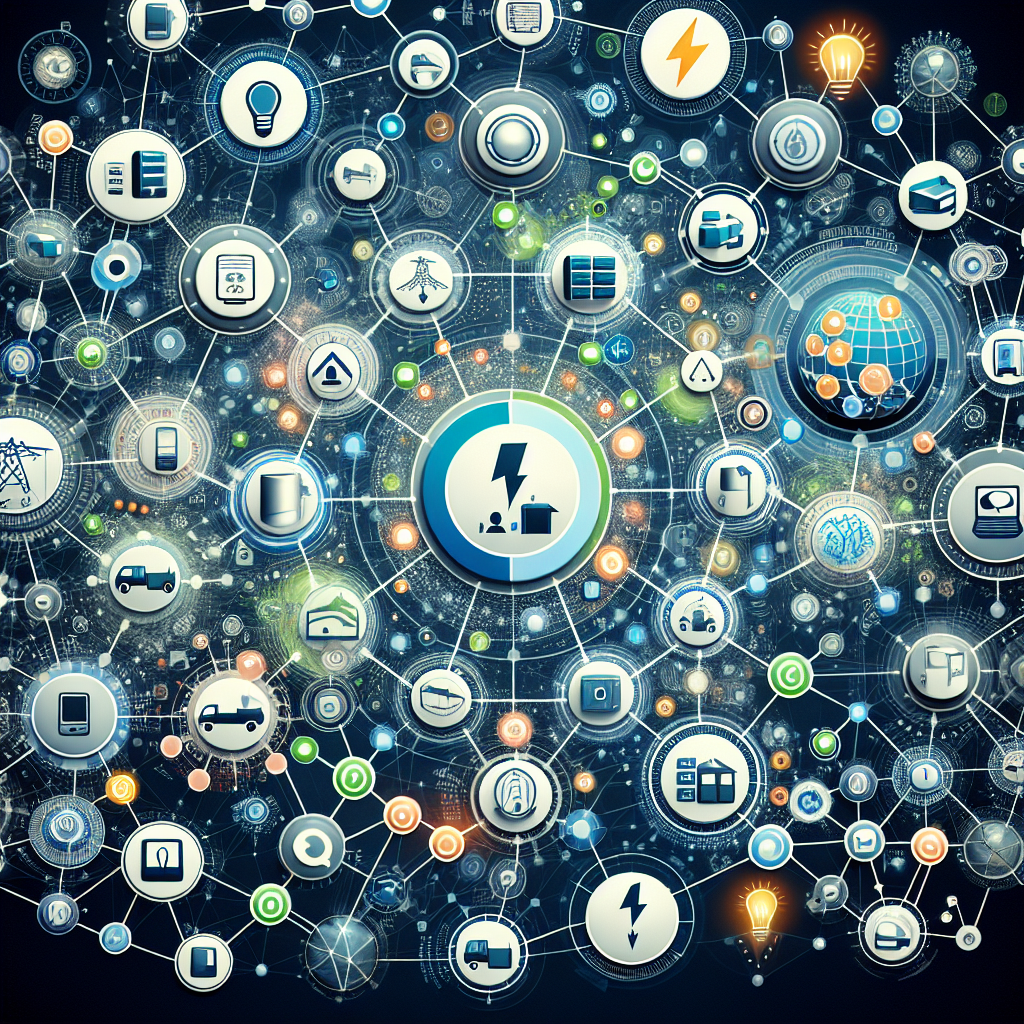September 26, 2024
Multi-Agent Systems in Intelligent Energy Grids
Book a Demo
Introduction to Multi-Agent Systems
Multi-agent systems (MAS) are computational systems in which multiple autonomous entities, known as agents, interact or work together to perform tasks or solve problems. Each agent in a MAS has its own capabilities, goals, and behavior, and can operate independently or collaboratively with other agents. In the context of smart grids, MAS are employed to improve the efficiency, reliability, and sustainability of energy distribution and consumption.
MAS are designed to manage complex and dynamic environments, making them well-suited for the challenges presented by modern energy grids. These systems enable decentralized control, allowing for more flexible and adaptive management of energy resources. By leveraging the capabilities of MAS, smart grids can effectively integrate renewable energy sources, optimize energy distribution, and maintain a stable supply-demand balance.
Renewable Energy Integration
The integration of renewable energy sources, such as solar and wind power, into the energy grid presents both opportunities and challenges. Renewable energy is inherently variable and intermittent, which can lead to fluctuations in power generation and supply. MAS play a crucial role in addressing these challenges by providing a dynamic and adaptive framework for managing renewable energy resources.
In a smart grid, MAS can facilitate the seamless integration of renewable energy by coordinating the actions of various agents, such as energy producers, consumers, and storage systems. These agents can communicate and collaborate to optimize the use of renewable energy, minimize curtailment, and ensure a stable and reliable power supply. By leveraging the capabilities of MAS, smart grids can maximize the benefits of renewable energy while mitigating its inherent variability.
Energy Distribution Management
Efficient energy distribution is a critical component of a smart grid, and MAS are instrumental in achieving this goal. Traditional energy distribution systems rely on centralized control, which can be inflexible and slow to respond to changes in demand or supply. In contrast, MAS enable decentralized control, allowing for more responsive and adaptive management of energy distribution.
In a MAS-based smart grid, individual agents can monitor and manage different aspects of the energy distribution network, such as power lines, transformers, and substations. These agents can communicate with each other to share information and coordinate their actions, ensuring that energy is distributed efficiently and equitably. This decentralized approach enables the smart grid to quickly adapt to changes in demand or supply, reducing the risk of outages and improving overall reliability.
Real-Time Supply and Demand Balancing:
One of the primary challenges in managing an energy grid is maintaining a balance between supply and demand in real-time. MAS provide a powerful tool for achieving this balance by enabling dynamic and adaptive control of energy resources. In a MAS-based smart grid, agents can monitor real-time data on energy production, consumption, and storage, and use this information to make informed decisions about how to allocate resources.
For example, if a sudden increase in demand occurs, agents can quickly identify available energy sources and direct them to where they are needed most. Conversely, if there is an excess of energy supply, agents can coordinate actions to store or redistribute the surplus. This real-time balancing capability helps to ensure a stable and reliable energy supply, even in the face of fluctuations in demand or supply.
Sustainability in Energy Grids:
Sustainability is a key goal for modern energy grids, and MAS play a vital role in achieving this objective. By enabling more efficient and adaptive management of energy resources, MAS can help to reduce waste, minimize environmental impact, and promote the use of renewable energy sources.
In a MAS-based smart grid, agents can work together to optimize energy consumption, reduce peak demand, and improve overall efficiency. For example, agents can coordinate demand response programs, encouraging consumers to reduce their energy usage during peak times. Additionally, agents can manage energy storage systems, ensuring that renewable energy is stored and used effectively.
By leveraging the capabilities of MAS, smart grids can become more sustainable, resilient, and environmentally friendly. This not only benefits the environment but also helps to create a more reliable and cost-effective energy system for consumers.
Multi-agent systems (MAS) offer a powerful and flexible framework for managing the complexities of modern smart grids. By enabling decentralized control, dynamic resource allocation, and real-time balancing, MAS can help to integrate renewable energy sources, optimize energy distribution, and promote sustainability. As the demand for renewable energy continues to grow, the role of MAS in smart grids will become increasingly important, paving the way for a more efficient, reliable, and sustainable energy future.
Connect with our expert to explore the capabilities of our latest addition, AI4Mind Chatbot. It’s transforming the social media landscape, creating fresh possibilities for businesses to engage in real-time, meaningful conversations with their audience



